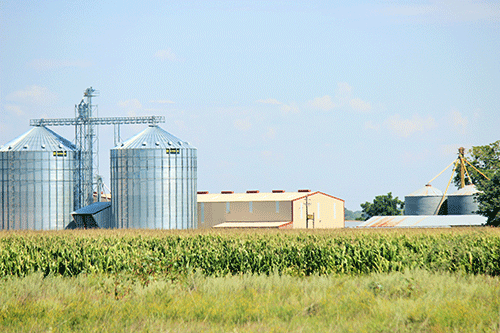With adequate financial and technical support, small crop farmers can be the game-changers needed by Namibia to achieve food security and revive the country’s 11 agricultural green schemes, which have struggled to reach their full potential.
This finding is contained in a National Council (NC) report of its standing committee on agriculture, environment and natural resources.
It is chaired by Grootfontein constituency councillor Elder Filipe, with the other members being Richard Goaseb (Katutura East), Paulus Mbangu (Rundu Rural), Joram !Haoseb (Daures) and Nicodemus Motinga from the Daweb constituency.
The committee visited Zambia in March, and their report was tabled in the NC last week.
At the heart of their mission was to study how Zambian green schemes are run and managed, as well as how the benefits derived therefrom help that country address the food security question, with a view to implementing them at home.
What struck the members of parliament (MPs) is that the Zambian government does not own the green schemes, unlike in Namibia.
There, the government only plays a facilitation role, while the farmers involved manage the green schemes themselves.
Chiefly, small crop farmers are at the centre of Zambia’s green schemes and drive the country’s food security endeavours, with their government’s support.
It is something that the Namibian government must emulate, the committee recommended.
“The Ministry of Agriculture, Water and Land Reform must introduce an affordable and subsidised insurance scheme for farmers to cover fertiliser, seeds and livestock feed, particularly due to no, early or poor rainfalls,” they added.
It is furthermore recommended that the ministry considers providing input subsidies to small-scale farmers from public resources.
The committee also wants the agriculture ministry to assist all small-scale farmers to reach self-reliance in marketing, quality and quantity, and aThe agriculture ministry must furthermore start a farmers’ support initiative, similar to Zambia’s Farmers Input Support Programme (FISP).
The FISP has an index insurance product.
“Insurance only covers weather-related damages, mostly due to climate change that is causing erratic weather patterns, which negatively impact agriculture and threatening livelihoods and food security in the country,” the committee further found.
The concerned ministry is likewise urged to set up a seed control and certification institute, whose objective must be to enhance regulation among seed producers in order to ensure that Namibia has a sustainable seed control and production system which is easily accessed and affordable among the farming communities.
“The committee uncovered that there was a need to invest in irrigation infrastructure to address the accompanying challenges related to drought. The committee also found that most challenges within the green schemes are only experienced by commercial farmers, as they are self-reliant. Smallholder farmers are supported by the government to get them to a level where they can reach a stage of self-reliance,” reads part of the report.
Moreover, the Zambian authorities have placed emphasis on the fact that green schemes should be first understood and considered as a business.
“That requires capacity and skills. The committee uncovered that the Zambian government received assistance from development partners to enhance the irrigation projects for small farmers,” continued the report.
Additionally, the Filipe-led committee said the agriculture ministry must convert one of the green schemes for input production, such as seed species.
This green scheme must not be limited to the production of hybrid maize, wheat, soya beans, rice, potatoes and sorghum.
“The ministry must also incentivise local companies to carry out research in the field to develop certified seed, and determine which seeds are more suitable for which geographical area, given the country’s varying topography,” the committee said.
Artificial rivers
While observing river boundaries and international law, the agriculture ministry must conduct a feasibility study on setting up artificial rivers in Namibia, the report further stated.
The studies are to be carried out in the Kavango East, Kavango West, Kunene and Zambezi regions in order to address food security.
“A pilot of this study can be done along the Kavango River in the Kavango East region,” reads another recommendation.
The agriculture ministry must furthermore “construct an artificial waterway by way of pipes from the Neckartal Dam in the //Kharas region for irrigation to agricultural activities in order to address food security.”
– emumbuu@nepc.com.na
Caption:


